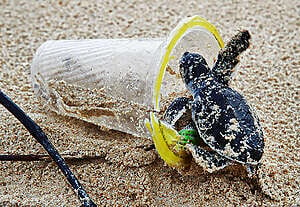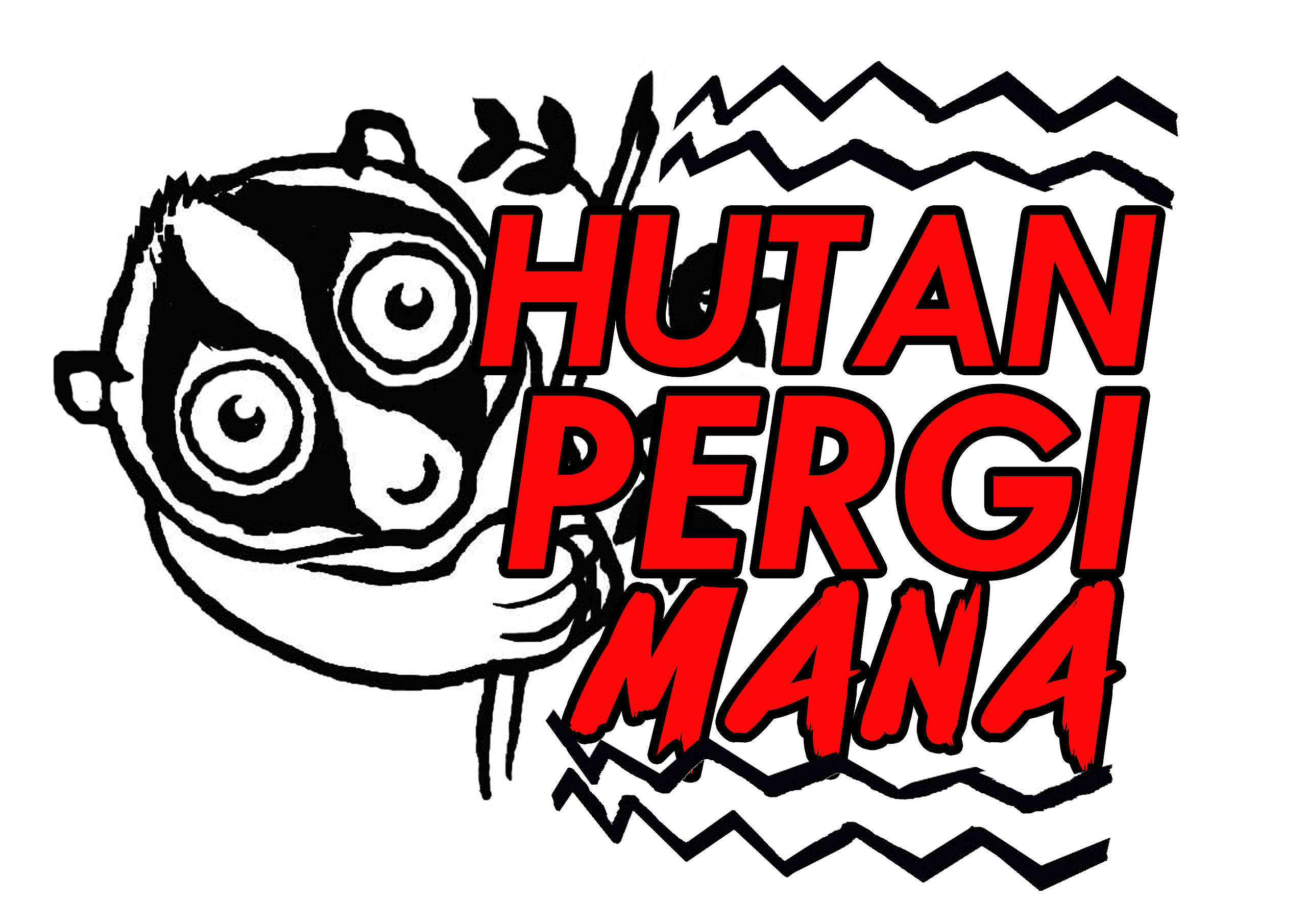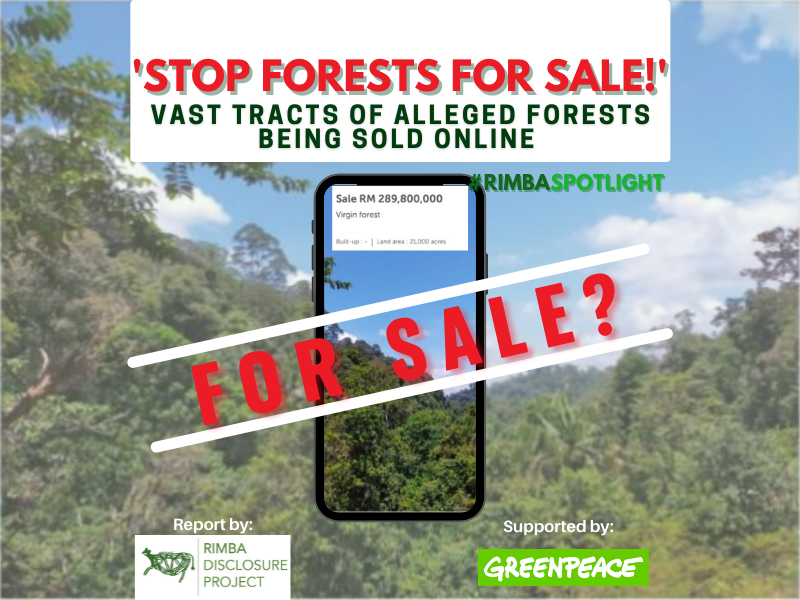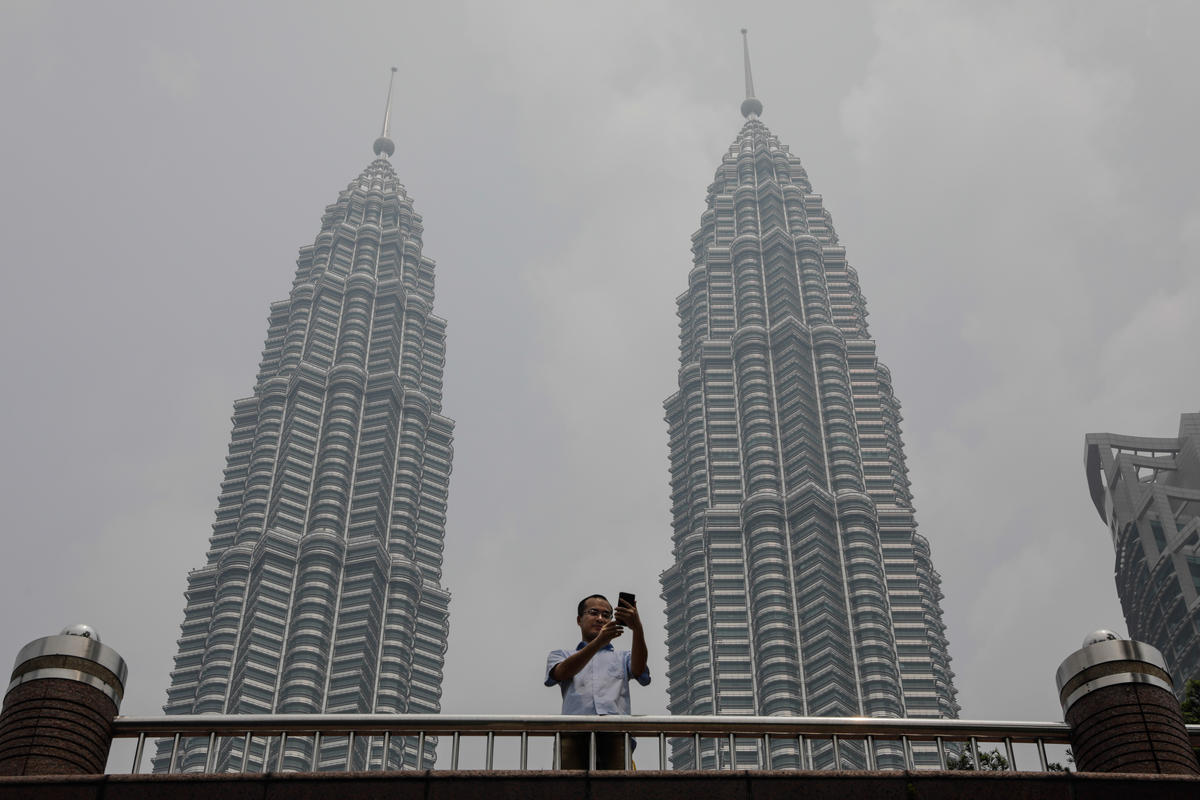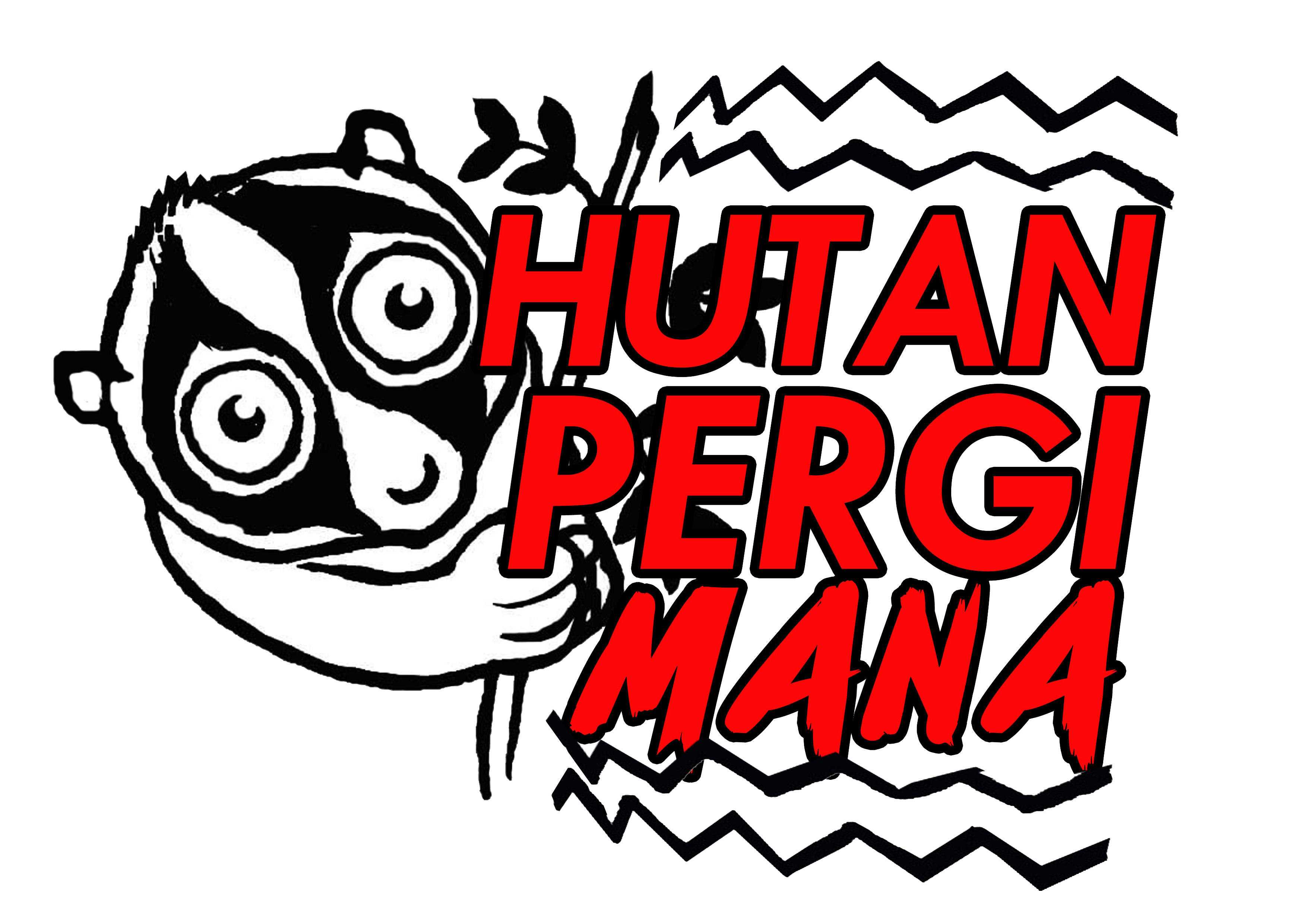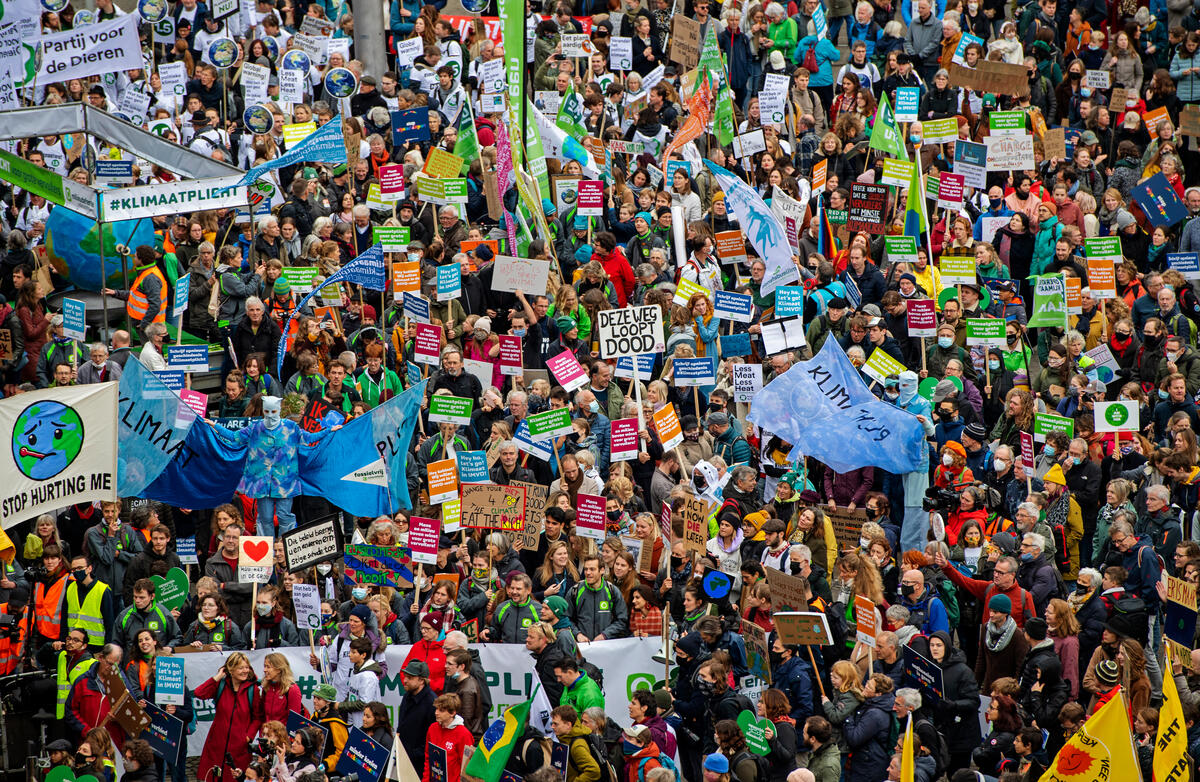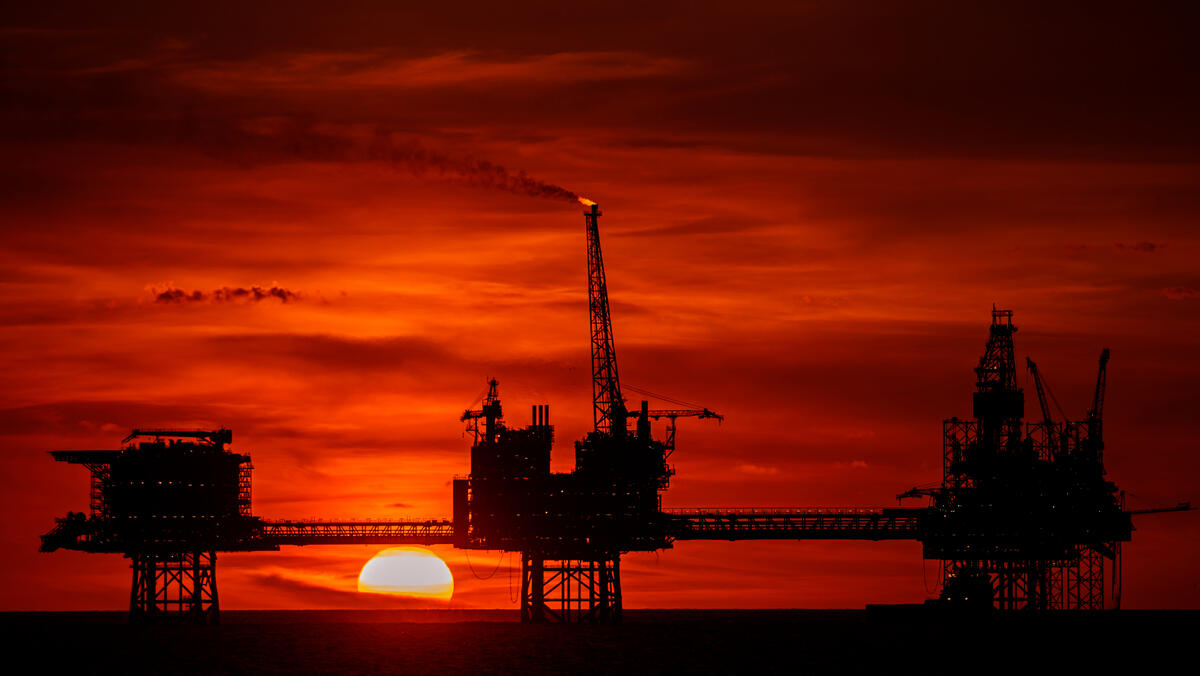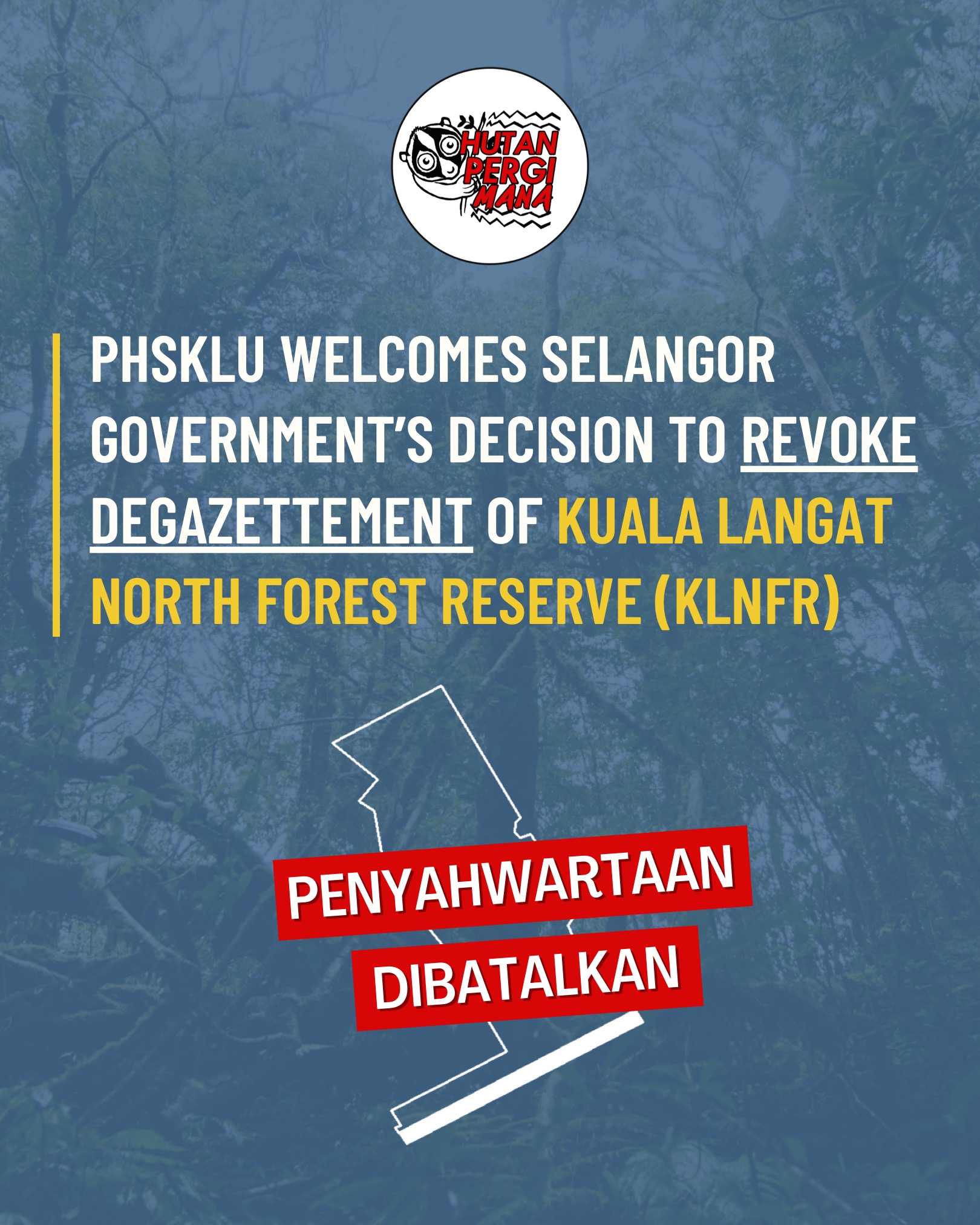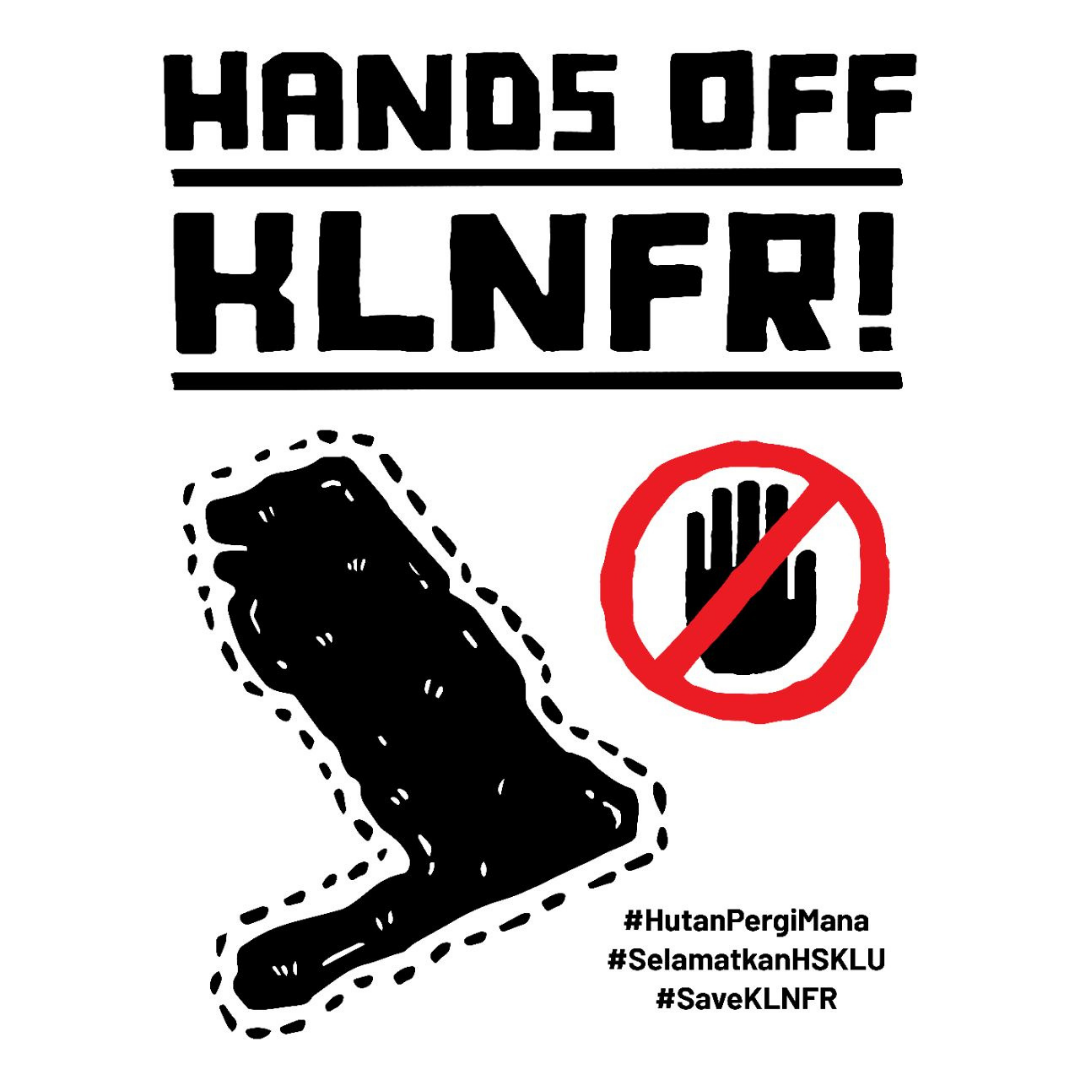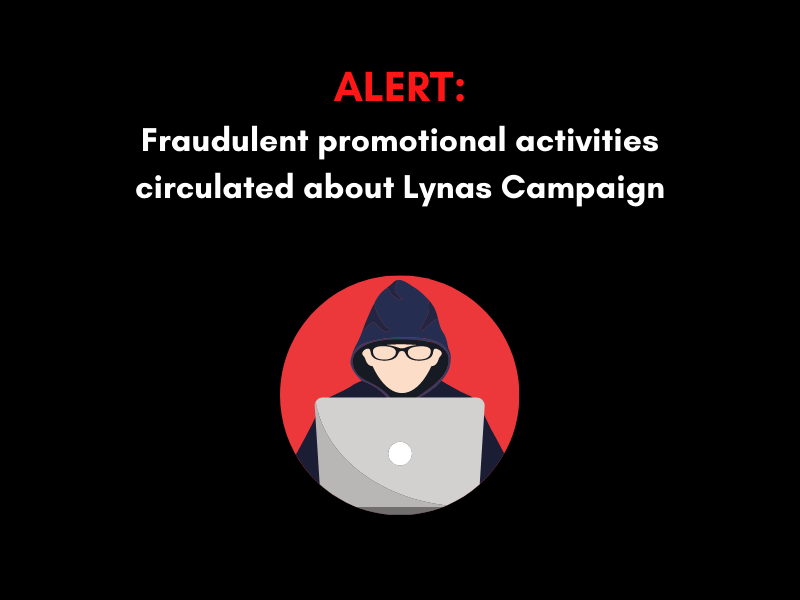All articles
-
Selangor Government must comply with promise to re-gazette Hutan Simpan Kuala Langat Utara
The PHSKLU coalition demands the Selangor State Government carries out its promise to re-gazette Hutan Simpan Kuala Langat Utara immediately, without delay and without conditions.
-
Stop Forests for Sale!
The Rimba Disclosure Project (RDP), supported by Greenpeace Malaysia raised concerns over the likely conversion of forested lands which are being advertised for sale online.
-
Civil society groups file landmark complaint to SUHAKAM for public inquiry into haze pollution as a human rights violation.
Ahead of the International Human Rights Day on 10th of December, a broad alliance of civil society organisations files a pioneering complaint at the Malaysian Human Rights Commission (SUHAKAM) as a proactive countermeasure to address the chronic and persistent haze pollution.
-
Selangor Government Delays with Inefficient Regazettement of Hutan Simpan Kuala Langat Utara
The Pertahankan Hutan Simpan Kuala Langat Utara (PHSKLU) coalition demands that the Selangor State Government carries out its promise to regazette Hutan Simpan Kuala Langat Utara immediately.
-
Real Solutions, NOT Carbon Offsets
Net-Zero is not Zero. Carbon offsetting is the opposite of proven concrete actions to reduce emissions and a dangerous game to play, it’s a licence to keep polluting.
-
How major brands are inviting Big Oil into your kitchen
A report released by Greenpeace USA reveals how consumer goods companies like Coca-Cola, PepsiCo and Nestlé are driving the expansion of plastic production and threatening both…
-
PHSKLU Coalition welcomes Selangor Government’s decision to revoke degazettement of KLNFR
The Pertahankan Hutan Simpan Kuala Langat Utara (PHSKLU) Coalition welcomes decision to revoke the degazettement of the Kuala Langat North Forest Reserve (KLNFR), while urging the state government to promptly expedite the re-gazettement.
-
Selangor State Government must present the truth about the degazetted portion of Kuala Langat North Forest Reserve (KLNFR)
The Pertahankan Hutan Simpan Kuala Langat Utara (PHSKLU) Coalition demands that the Selangor State Government immediately revokes the degazettement the Kuala Langat North Forest Reserve and stops making false claims to justify its action.
-
Greenpeace Malaysia’s response to the Kuala Langat North Forest Reserve degazettement.
The people’s voice and opinion has once again been silenced, and the people blindsided by the Selangor state government’s questionable concealment and lack of communication and transparency on the decision to degazette KLNFR.
-
ALERT: Fraudulent promotional activities circulated about Lynas Campaign
False messages have been circulated with the malicious intent to portray Greenpeace Malaysia as paying out individuals to provide their support for the Stop Lynas campaign.

